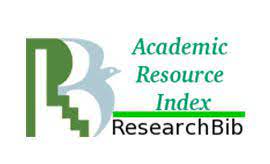PSYCHOLOGICAL AND PEDAGOGICAL ASPECTS OF EDUCATIONAL INTERACTION OF PHYSICS TEACHERS WITH HIGH SCHOOL STUDENTS IN CONDUCTING LABORATORY WORK IN CONDITIONS OF INFORMATIZATION OF THE EDUCATIONAL PROCESS.
DOI:
https://doi.org/10.51707/2618-0529-2022-23-05Keywords:
educational interaction, computerization and informatization of the educational process, VERNIER measuring systems, information and communication technologies (ICT), laboratory classes in physics.Abstract
The article is devoted to the analysis of psychological and pedagogical aspects of educational interaction of physics teachers with high school students in conducting laboratory work in modern conditions of computerization and informatization of the educational process. The ambiguity and socio-psychological significance of this problem in the conditions of modern information technology society are analyzed. The psychological and pedagogical aspects of the problem of informatization of the educational process and educational environment as a component of modernization of the education system are considered. It is shown that under certain conditions the process of transferring sources of information to the virtual space transforms the educational process into a personality-oriented interactive educational environment of a new type. The peculiarities of educational interaction in the conditions of modern informatization of educational process in the context of carrying out laboratory works on physics are outlined, the features of pedagogical tasks at their carrying out are considered. The didactic and developmental role of laboratory works in physics is generalized. The peculiarities of traditional teaching practice in laboratory work are critically considered. The advantages and disadvantages of using information and communication technologies (ICT) in laboratory work in physics are formulated and some recommendations are given for the creation and operation of a favorable information and educational environment in physics lessons, in particular, based on the use of VERNIER measuring systems. The subject-oriented principles of educational communications (accessibility, interactivity, versatility, innovation) are considered, which can be applied to the real educational interaction of physics teachers and students in a situation of live communication in the use of ICT. It is concluded that when using computer tools in the educational process, the student should be an active participant in the pedagogical process. The task of a physics teacher is to ensure the subject-subject nature of pedagogical relations, in particular, in the implementation of the pedagogy of cooperation, dialogue and equality of psychological positions.
References
Kurliand, Z. N. (2007). Pedahohika vyshchoi shkoly [Pedagogy of high school]. Z. N. Kurliand (Ed.). Kyiv : Znannia [in Ukrainian].
Zhaldak, M. I. (2013). Problemy informatyzatsii navchalnoho protsesu v serednikh i vyshchykh navchalnykh zakladakh [Problems of informatization of the educational process in secondary and higher educational institutions]. Kompiuter v shkoli ta simi – Computer at school and family, 3, 8–15 [in Ukrainian].
Hurevych, R. S., Kademiia, M. Yu. & Shevchenko, L. S. (2012). Informatsiini tekhnolohii navchannia: innovatsiinyi pidkhid [Information learning technologies: an innovative approach]. R. S. Hurevych (Ed.). Vinnytsia : TOV firma “Planer” [in Ukrainian].
Vasilyeva, I. A. Osipova, E. M., & Petrova N. N. (2002). Psikhologicheskiye aspekty primeneniya informatsionnykh tekhnologiy [Psychological aspects of the application of information technologies]. Voprosy psikhologii – Questions of psychology, 3, 80–88 [in Russian].
Feldhusen, J. (2007). Educating teachers for work with talented youth. In N. Colangelo and G. A. Davis (Eds.). Handbook of gifted education. Boston Allyn & Bacon.
Pajares, F., & Valiante, G. (2002). Students self-efficacy in their selfregulated learning strategies: A developmental perspective. Psychologia, 45, 211–22.
Roblyer, M. (2009). Integrating educational technology into teaching. San-Diego, CA : Resiliency in Action, inc.
VanTassel-Baska J., & Johnsen S. (2007). Teacher educatіon standarts for the field of gifted education: a vision of conference for personnel preparation in the 21st century. Gifted Child Q., 51, 182–205.
Tokareva, N. M., & Shamne, A. V. (2017). Vikova ta pedahohichna psykholohiia [Age and pedagogical psychology]. Kyiv [in Ukrainian].
Shcherban, T. D. (2004). Psykholohiia navchalnoho spilkuvannia [Psychology of educational communication]. Kyiv : Milenium [in Ukrainian].
Sitarova, V. A. (2014). Teoriya obucheniya. Teoriya i praktika [Theory of learning. Theory and practice]. Moskow : Izdatelstvo “Yurayt” [in Russian].
Sadovyi, M. I., Vovkotrub, V. P., & Tryfonova, O. M. (2013). Vybrani pytannia zahalnoi metodyky navchannia fizyky [Selected issues of general methods of teaching physics]. Kirovohrad : PP “Tsentr operatyvnoi polihrafii «Avanhard»” [in Ukrainian].
Kadchenko, V. M., & Sliusarenko, M. A. (2021). Vykorystannia tsyfrovoi laboratorii VERNIER v protsesi pidhotovky maibutnikh vchyteliv fizyky [Using the VERNIER digital laboratory in the process of training future physics teachers]. T. Yu. Dudka (Eds.). Suchasna osvita i nauka: problemy, perspektyvy, innovatsii – Modern education and science: problems, prospects, innovations : Scientific works collection of the International Scientific and Practical Conference. (Pp.162–166). Kyiv [in Ukrainian].
Zhuk, Yu. O. (2012). Orhanizatsiia navchalnoi diialnosti u kompiuterno oriientovanomu navchalnomu seredovyshchi [Organization of educational activities in a computer-based learning environment]. Kyiv : Pedahohichna dumka [in Ukrainian].
Downloads
Published
How to Cite
Issue
Section
License
Copyright (c) 2022 Scientific notes of Junior Academy of Sciences of Ukraine

This work is licensed under a Creative Commons Attribution 4.0 International License.













